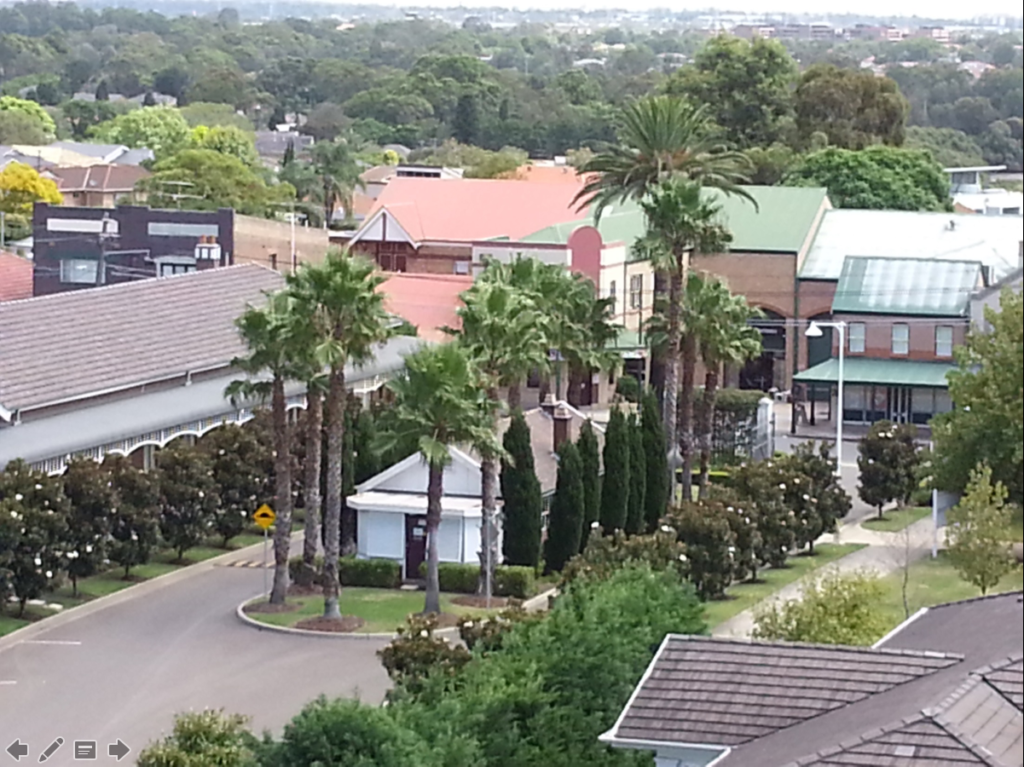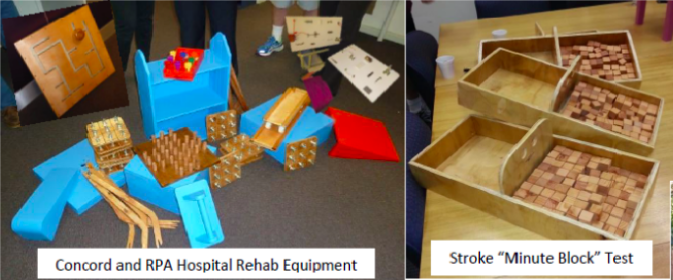In October of this year I had the fortune to choose Breakfast Point Men’s Shed (BPMS) as my non-profit organisation of choice. Tasked with volunteering for a group, the eventual aim was to collaborate with them to form a historical project of some sort, to complete a product that would be of use to them. My initial conversations with the men at the Shed highlighted the need for a distinct “record” of sorts. Although the guys had thousands of photos recording the actions their organisation had taken – most notably woodwork projects for their surrounding community – they lacked a formalised story of how the Shed came into existence. As a group focussed on men’s mental health, physical wellbeing and charity, this was hardly on the list of their priorities. Fortunately, these stories remained in the minds of the members themselves, given the relatively recent formation of the organisation.
By becoming increasingly exposed to the community work at BPMS, and through conversations with members within the group, I was inspired and encouraged to record the short history of the Shed. This formed my primary aim of the project: to detail the history and significance of the organisation. I was struck by the group’s generosity in time and resources to both myself and their wider community. Hence, the project I have conducted seeks to show, both implicitly and explicitly, that BPMS is an integral part of the Breakfast Point Community.

But who was this project meant for? Shed Members? The Public? My decision to create a website to display this history enabled it to target both. Although not yet on the BPMS website, my hope is that an attachment can be made there, linking to my project. In so doing, this project has the capacity to reach all Shed members, many of whom frequent their own website to keep up to date with weekly scheduled events. It also has the added benefit of being accessible to the general public, or indeed anyone looking to join the Shed itself. The website itself targets the varying aspects of organisation. Initially, it details how the Shed originated and grew. In the retelling of this history, I attempt here to convey the group as constantly updating and improving upon itself and its space. I also expanded upon two further themes. Firstly, the huge support the Shed brings its wider community. This was a must in highlighting the history of the organisation, it has remained one of their core goals. Secondly, the value the Shed has towards the members themselves. From firsthand experience, I have seen how committed the men are towards fostering a community that can talk openly towards one another, tackling Men’s mental health a conversation at a time.
How was I sourcing my content? What was my evidence? In this regard, a secondary reading that I had read within this university unit – M. Scott Momaday’s The Way to Rainy Mountain – drastically altered my perception of what counted as valid historical practice. Within his work, Momaday utilizes personal experience, myth and oral testimony to record the history of his native american community. Ultimately this concept informed the creation of my own project, and the value oral testimony has in mapping intimate, local histories. It is for this reason that I have relied heavily on the words of the people that constitute the Shed. For the purposes of this short history, these men have lived through and consciously facilitated the growth and attitude of the organisation. They were my greatest source. Thankfully, key members at Breakfast Point generously gave me access to many photos, along with a few documents, which complemented the image of what the Shed was and how it had changed.
My hope is that by creating this website, I have made a place where current members can come to reflect upon the story of their organisation so far. As new generations are inducted as Men’s Shed members, I also hope this project will have a longer lasting effect. My wish is that it can inform successive generations about the humbles beginnings from which the Shed started and importance the group has had upon Breakfast Point, the Community Association and the members themselves.
I want to extend a sincere thank you to Tony, Gerrard, Vince, Ugo, Kevin, Ron V, Ron S, Chris, Bruce, Ross and many other members that were so accommodating and generous with their time. Without your insight, warmth and knowledge this project would not have been possible. Thanks for making my time there enjoyable.
You can visit the website directly here: https://williamblanks21.wixsite.com/mysite or through the main page on the BPMS website: http://www.breakfastpointmensshed.com/index.php

